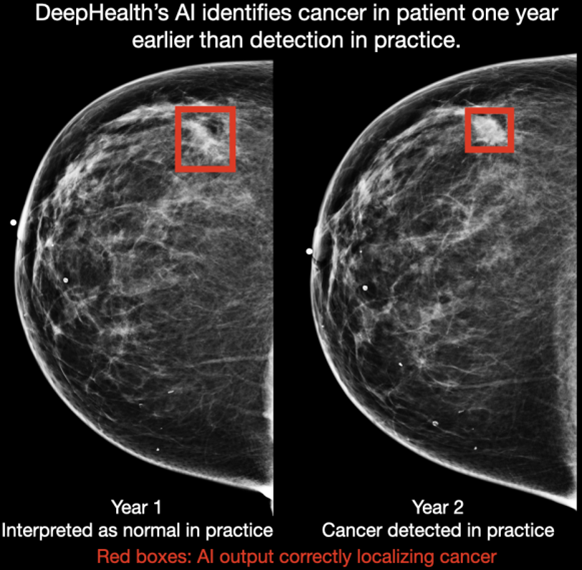RadNet’s DeepHealth Gets FDA Clearance for AI Mammography Software
 RadNet, Inc. has announced that its subsidiary DeepHealth, a leading developer of artificial intelligence (AI) for mammography interpretation, has received FDA clearance for its mammography triage software Saige-Q.
RadNet, Inc. has announced that its subsidiary DeepHealth, a leading developer of artificial intelligence (AI) for mammography interpretation, has received FDA clearance for its mammography triage software Saige-Q.
Saige-Q is a screening worklist prioritization tool that enables radiologists to more effectively manage their mammography cases with the use of artificial intelligence. DeepHealth’s powerful new AI technology automatically identifies suspicious screening exams that may need prioritized attention, allowing radiologists to optimize their workflow for efficiency and effectiveness.
“Saige-Q is built using our core artificial intelligence algorithms, described in a recent article in Nature Medicine,” said Bill Lotter, PhD, CTO, and co-founder of DeepHealth. “As the first FDA-cleared mammography triage product that supports 3D mammography in addition to 2D mammography, Saige-Q demonstrates high performance that is maintained across different breast densities and lesion types.”
“As our first FDA-cleared product, Saige-Q is a major milestone for our team. It represents the first step of many towards delivering the best care possible for patients through rigorous science that clinicians and patients can trust,” said Gregory Sorensen, MD, CEO, and co-founder of DeepHealth. “We have developed an advanced algorithm to support radiologists with the significant challenge of finding breast cancer as early as possible. Saige-Q empowers radiologists to optimize how and when they read cases marked by Saige-Q as suspicious or those not marked as suspicious, enhancing their ability to deliver the best care.”
Howard Berger, MD, President and Chief Executive Officer of RadNet, commented, “Receiving FDA clearance for our first mammography AI software algorithm is an important step in RadNet’s commitment to delivering the best quality of care for our patients. With the almost 2 million mammography exams we perform annually in our markets, we will now begin to deploy this tool, enabling our mammographers to become more accurate and productive. The efficiency gains and accuracy should be further enhanced by a more advanced diagnostic algorithm we plan to submit to the FDA for its review by year end.”
“With the purchase of DeepHealth last year and the ongoing investments we are making in AI, we are dedicated to leading the transformation of our industry into utilizing machine learning to enhance patient outcomes, improve the productivity of radiologists and offer unique screening programs to health insurers which we believe will have a profound impact on population health and wellness,” Dr. Berger noted.
Related Articles
Citation
RadNet’s DeepHealth Gets FDA Clearance for AI Mammography Software. Appl Radiol.
April 20, 2021